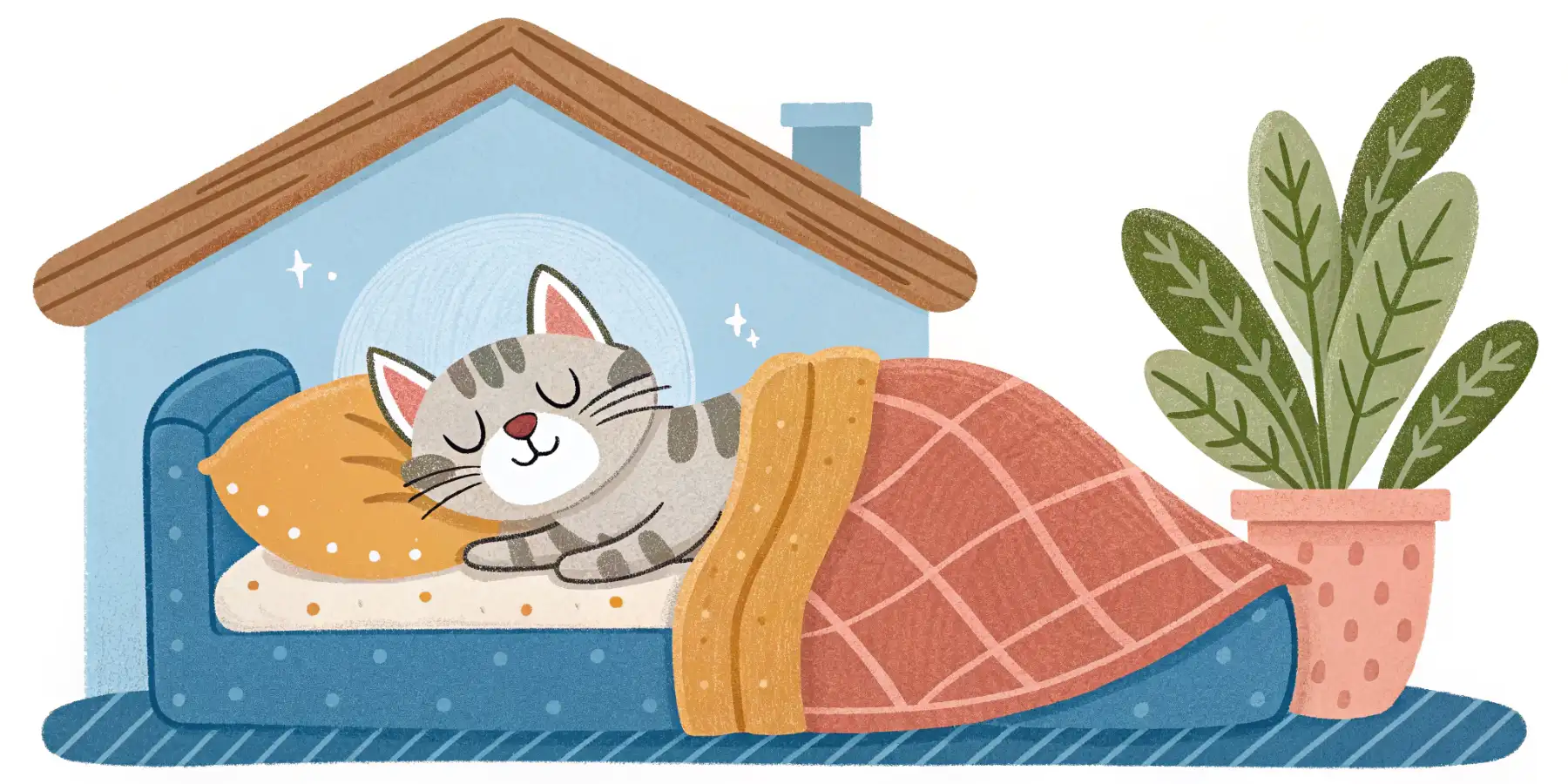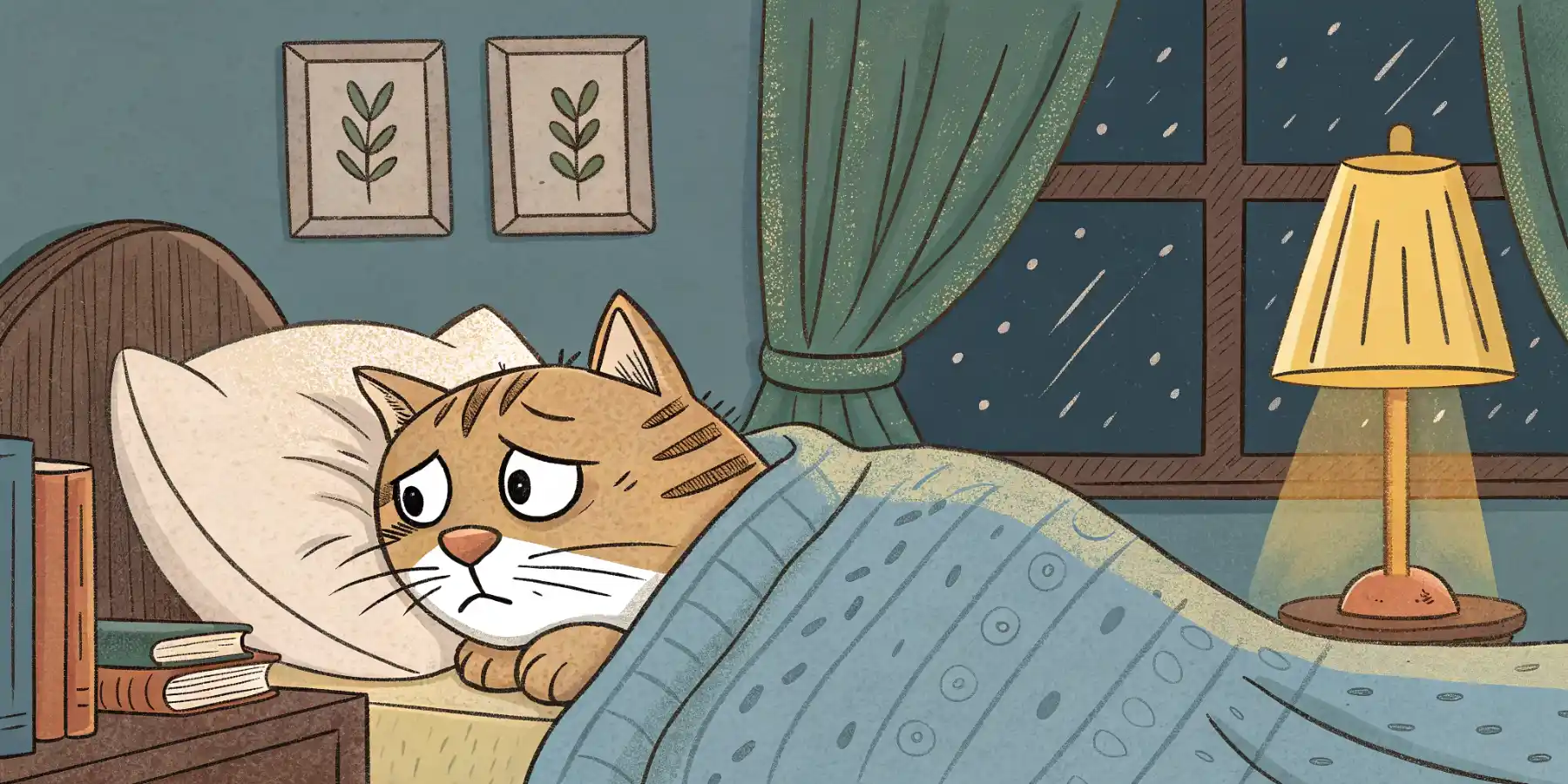
Is Your Cat Senile? Feline Cognitive Dysfunction
Is your senior cat acting strange? It could be Feline Cognitive Dysfunction. Learn to recognize the signs of cat senility and help your furry friend!
Feline Cognitive Dysfunction: Recognizing and Managing Senility in Cats
It’s heartbreaking to watch our beloved feline companions age. While we cherish their years of companionship, senior cats, just like people, can experience cognitive decline. This condition, known as Feline Cognitive Dysfunction (FCD), is essentially feline senility, and understanding it is crucial for providing the best possible care for your aging friend.
FCD isn’t simply “getting old.” It’s a progressive neurodegenerative disorder, similar to Alzheimer’s disease in humans, that affects a cat’s memory, learning ability, awareness, and overall cognitive function. Recognizing the signs early can allow you to implement strategies to improve your cat’s quality of life and manage the condition effectively.
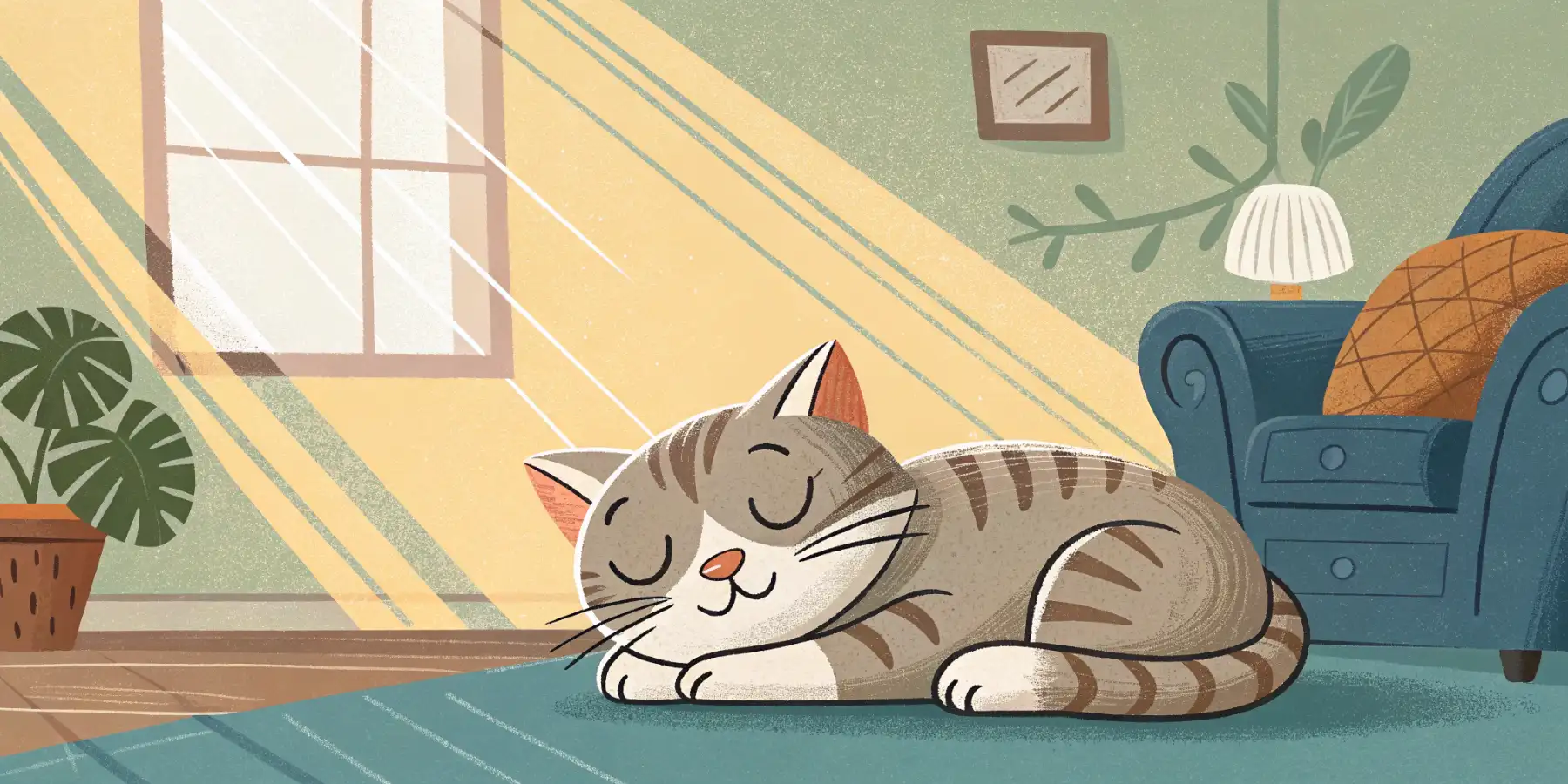 Caption: A peaceful senior cat enjoying a sunny afternoon, a reminder of the simple joys we want to preserve as they age.
Caption: A peaceful senior cat enjoying a sunny afternoon, a reminder of the simple joys we want to preserve as they age.
What are the Signs of Feline Cognitive Dysfunction?
The symptoms of FCD can vary, and they often develop gradually, making them easy to dismiss as just “old age.” However, being aware of these signs can help you identify the problem and seek veterinary advice. Remember, not every senior cat will develop FCD, and some may only exhibit a few symptoms. The acronym DISHAA is often used to help remember the key signs:
- Disorientation: Getting lost in familiar places, staring blankly at walls, or seeming confused. My own cat, Whiskers, started acting disoriented a few years ago. He would often get “stuck” behind the sofa, even though he knew perfectly well how to get out. It was a clear sign something was changing.
- Interaction Changes: Reduced interest in interacting with you or other pets. They may become less affectionate or, conversely, clingier.
- Sleep-Wake Cycle Alterations: Changes in sleeping patterns, such as sleeping more during the day and being restless or vocal at night. This can be one of the most disruptive aspects for both the cat and the owner.
- House Soiling: Accidents outside the litter box, even if they were previously perfectly litter-trained. This is often not a behavioral issue; it can be a sign of cognitive decline.
- Activity Level Changes: Decreased activity, reduced grooming, or repetitive behaviors such as pacing or excessive vocalization.
- Anxiety: Increased anxiety, fearfulness, or irritability. They may become easily startled by noises or movements that didn’t bother them before.
Other signs that may indicate FCD include:
- Changes in appetite.
- Difficulty learning new tasks or remembering old ones.
- Increased irritability or aggression.
- Ignoring familiar people.
If you notice any of these signs, it’s crucial to consult with your veterinarian. They can rule out other potential medical conditions that may be causing similar symptoms, such as kidney disease, hyperthyroidism, or arthritis. Seeking early diagnosis of cognitive dysfunction in cats is essential for managing the progression.
Diagnosing Feline Cognitive Dysfunction
There’s no single test to definitively diagnose FCD. Diagnosis is typically based on your observations of your cat’s behavior, a physical examination, and ruling out other possible medical conditions. Your vet may ask you detailed questions about your cat’s daily routine, behavior patterns, and any changes you’ve observed. Blood and urine tests are often performed to check for underlying health issues.
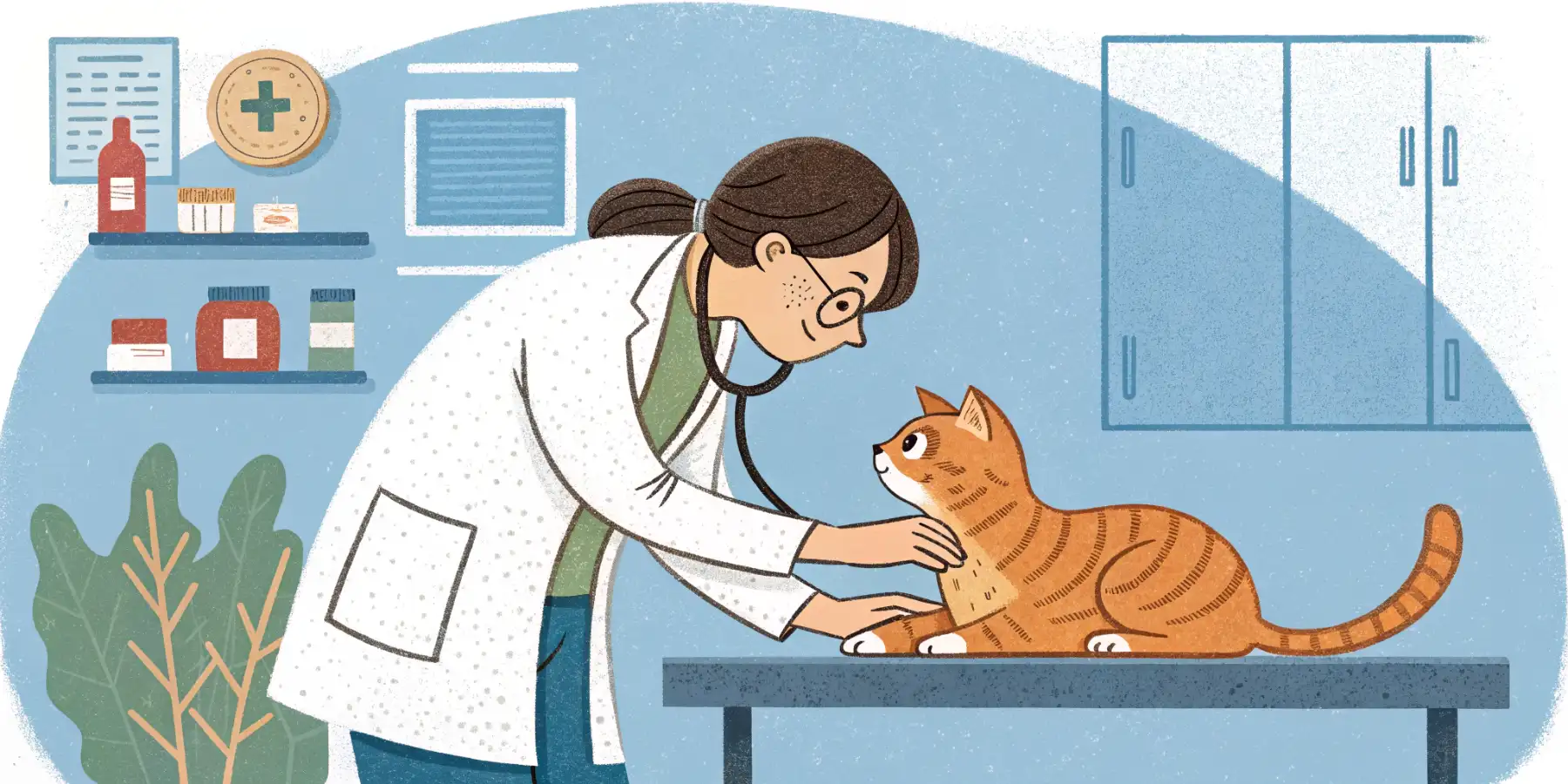 Caption: A veterinarian examining a senior cat, highlighting the importance of regular checkups for early detection of health issues.
Caption: A veterinarian examining a senior cat, highlighting the importance of regular checkups for early detection of health issues.
Managing Feline Cognitive Dysfunction: Improving Quality of Life
While there’s no cure for FCD, there are several strategies you can implement to manage the symptoms and improve your cat’s quality of life. The goal is to create a comfortable, predictable, and stimulating environment.
- Environmental Enrichment: Provide plenty of opportunities for mental stimulation, such as puzzle feeders, interactive toys, and scratching posts. Consider cat trees or window perches to allow them to observe the world outside.
- Dietary Changes: Certain diets are formulated to support brain health in senior cats. These diets often contain antioxidants, omega-3 fatty acids, and other nutrients that may help slow cognitive decline. Talk to your vet about the best dietary options for your cat. In my experience, a noticeable improvement in alertness has been seen in cats switched to these special diets.
- Medications and Supplements: Your veterinarian may recommend medications or supplements to help manage specific symptoms of FCD, such as anxiety or sleep disturbances. Some commonly used supplements include SAMe, phosphatidylserine, and L-theanine.
- Maintain a Routine: Cats thrive on routine. Stick to a consistent feeding schedule, playtime, and bedtime. This can help reduce anxiety and confusion.
- Provide Easy Access: Ensure your cat has easy access to food, water, litter boxes, and comfortable resting places. Consider using ramps or steps to help them reach favorite spots.
- Reduce Stress: Minimize changes in the environment and avoid situations that may cause stress. Provide a safe and quiet space where they can retreat when feeling overwhelmed.
- Litter Box Placement: Make sure that the litter box is easily accessible. As a senior cat ages, jumping into a high-sided litter box can be difficult. It may be best to use a litter box with lower walls.
- Pheromone Therapy: Synthetic feline pheromones, such as Feliway, can help reduce anxiety and create a calming environment. These are available as diffusers, sprays, and wipes.
Adapting Your Home for a Cat with FCD
Modifying your home to accommodate a cat with FCD is essential. Consider the following:
- Nightlights: Provide nightlights to help them navigate in the dark, especially if they’re experiencing disorientation.
- Soft Bedding: Ensure they have plenty of comfortable, soft bedding in various locations around the house.
- Clear Pathways: Keep pathways clear of obstacles to prevent them from tripping or getting lost.
- Confined Spaces: If your cat is becoming increasingly disoriented, you may need to confine them to a smaller, safer area when you’re not able to supervise them. This could be a single room with everything they need.
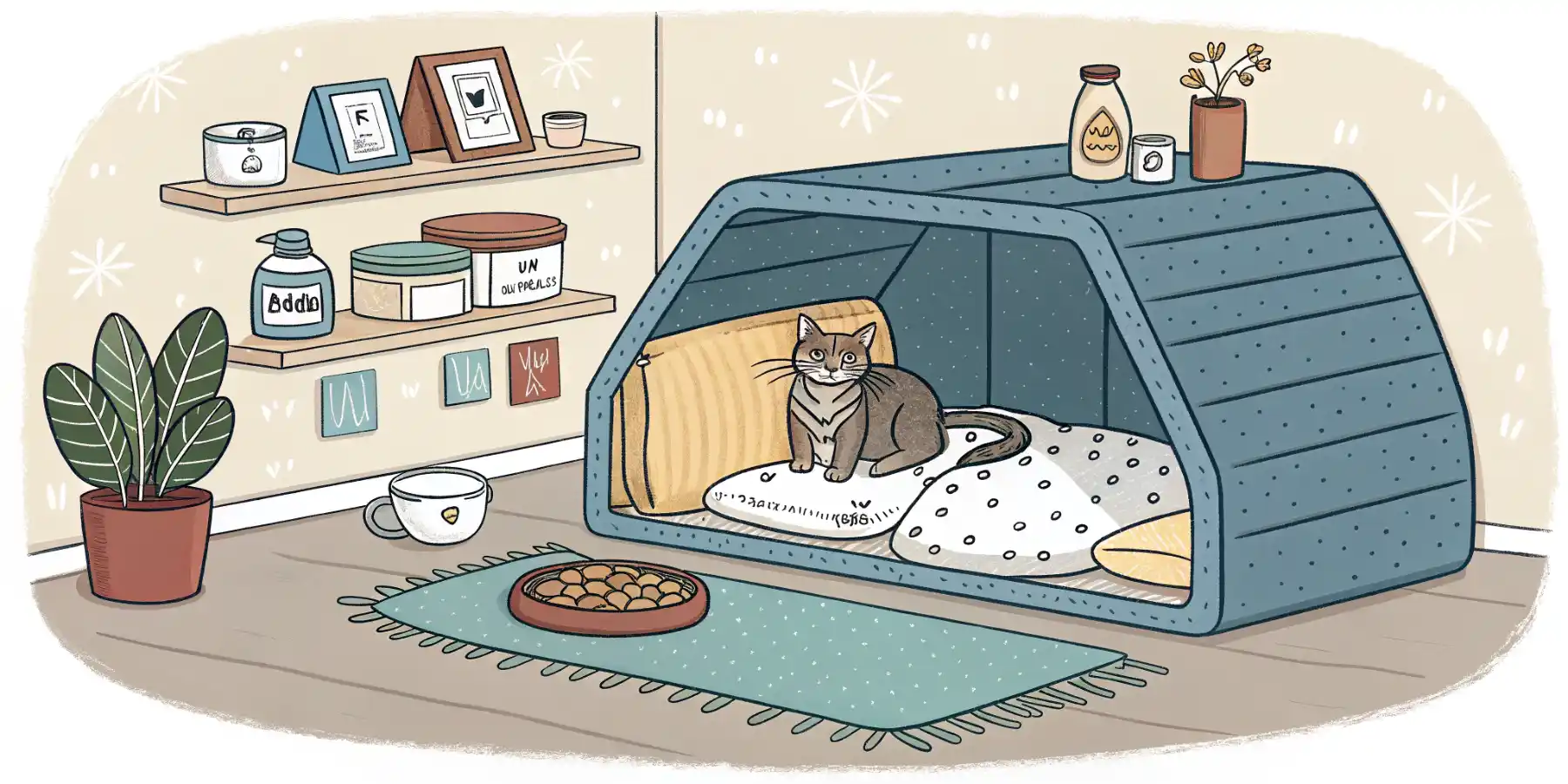 Caption: A cat-friendly environment designed for a senior cat with cognitive dysfunction, showcasing accessibility and comfort.
Caption: A cat-friendly environment designed for a senior cat with cognitive dysfunction, showcasing accessibility and comfort.
The Importance of Patience and Understanding
Living with a cat with FCD requires patience, understanding, and compassion. Remember that they are not intentionally being difficult or “bad.” They are experiencing cognitive decline, and their behavior is a result of this condition.
Be patient with accidents, changes in behavior, and increased needs. Provide them with plenty of love, reassurance, and a comfortable environment. I believe that even small acts of kindness, like gentle petting and speaking in a soothing voice, can make a big difference in their well-being.
Feline cognitive dysfunction can be challenging, but with proper management and a loving environment, you can help your senior cat live a comfortable and fulfilling life, even in their golden years. If you are concerned about age related cognitive decline in your senior cat, consult your veterinarian for the best plan of care.
